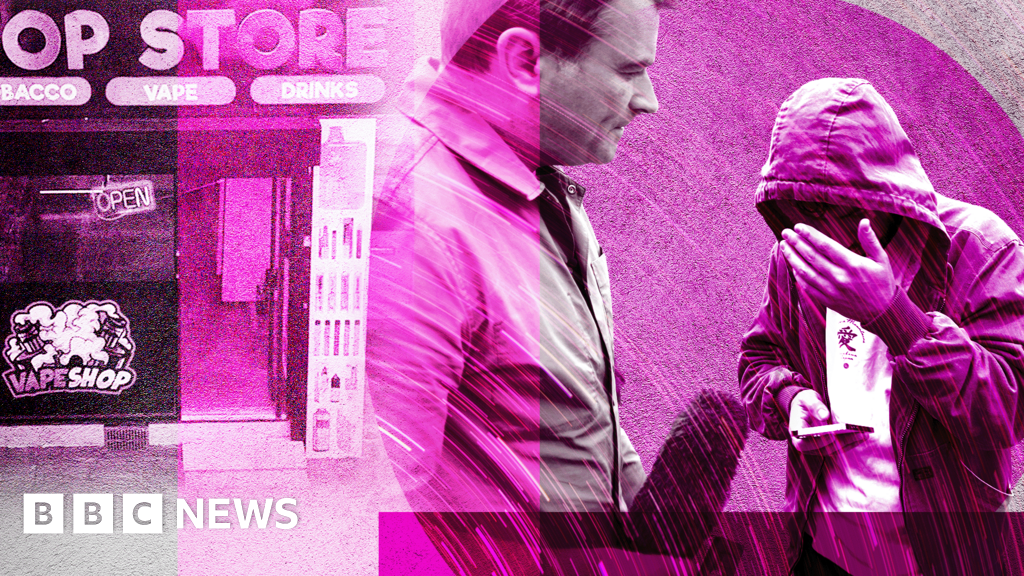Crime network behind UK mini-marts is enabling migrants to work illegally, BBC finds
2 hours ago Share Save Ed Thomas, UK editor , Patrick Clahane and Rebecca Wearn Share Save
Watch: BBC's Ed Thomas confronts Surchi of the Top Store mini-mart in Crewe
A Kurdish crime network is enabling migrants to work illegally in mini-marts on High Streets the length of Britain, a BBC investigation can reveal. The fake company directors are paid to put their names to official paperwork, and have dozens of businesses listed on Companies House, but are not involved in running them. Two undercover reporters, themselves Kurdish, posed as asylum seekers and were told how easy it would be for them to take over and run a shop and make big profits selling illegal vapes and cigarettes. We have linked more than 100 mini-marts, barbershops and car washes, operating from Dundee to south Devon, to the crime network. But a financial crime investigator told the BBC he believes it goes much wider.
Reacting to our investigation, Home Secretary Shabana Mahmood, said: "Illegal working and linked organised criminality creates an incentive for people to come here illegally. We will not stand for it." For the first time, we can reveal the inner workings of a criminal system that lets asylum seekers work in plain sight on UK High Streets, in mini-marts that mainly profit from illegal cigarettes and vapes. One man told us weekly takings from illicit tobacco at his shop could be "sometimes, up to £3,000". The men who facilitate it all - so-called "ghost directors" - each have dozens of businesses listed on Companies House but in many cases are not involved in running them. "The shop doesn't belong to me, it's just under my name," one of them told our undercover reporters. Many of the businesses are dissolved after about a year, and then re-opened with small changes to official paperwork. These businesses have "all the red flags" associated with organised criminality, a financial crime investigator told the BBC.
During our investigation we found: An asylum seeker, who says his claim was rejected, trying to sell a shop to our undercover reporter for
Continue Reading on BBC News
This preview shows approximately 15% of the article. Read the full story on the publisher's website to support quality journalism.
